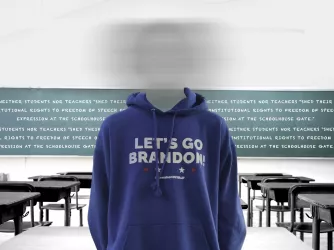Table of Contents
Speech Code of the Month: The Ohio State University

FIRE announces its Speech Code of the Month for September 2007: The Ohio State University.
The Office of University Housing at Ohio State, a public university, maintains a Diversity Statement that severely restricts what students in Ohio State’s residence halls can and cannot say. Students are instructed: “Do not joke about differences related to race, ethnicity, sexual orientation, gender, ability, socioeconomic background, etc.” Of the many hundreds of policies FIRE has catalogued over the years, this is the first that flatly instructs students, “do not joke” about controversial topics. As anyone who has ever lived in a dormitory can likely attest, dorms are where some of the freest and most frank discussions among college students take place. And some of those discussions will almost certainly include—gasp!—jokes about controversial topics such as race, ethnicity, and yes, possibly even ability. It was my own personal experience that in my very diverse residence hall freshman year, humor—sometimes even quite offensive humor—was a common ground that brought together and forged friendships among people of very different backgrounds. But rather than embrace the type of frank expression that often characterizes college student communication—expression that can indeed lead to offense but can also lead to friendships based on greater understanding—Ohio State has chosen to squelch it in favor of a superficially polite and politically correct environment. Not only is that an unfortunate choice, it is also one that, at a public university like Ohio State, violates students’ constitutional right to free speech. There is no exception to the First Amendment for ethnic jokes or dumb blonde jokes.
The Diversity Statement also contains another, quite cryptic, prohibition: “Words, actions, and behaviors that inflict or threaten infliction of bodily or emotional harm, whether done intentionally or with reckless disregard, are not permitted.” Could anyone at Ohio State actually explain what this prohibition means? How exactly does one threaten to inflict emotional harm? Would that mean shouting, “Hey you! Get out of here or I’m going to hurt your feelings…”? The problem with a prohibition like this one is that it is unconstitutionally vague. The Supreme Court has held that to avoid vagueness, a regulation must “give the person of ordinary intelligence a reasonable opportunity to know what is prohibited, so that he may act accordingly.” Grayned v. City of Rockford, 408 U.S. 104, 108 (1972). It is safe to say that no reasonable person can figure out exactly what this sentence prohibits.
For these reasons, The Ohio State University is our September 2007 Speech Code of the Month. If you believe that your college or university should be a Speech Code of the Month, please email speechcodes@thefire.org with a link to the policy and a brief description of why you think attention should be drawn to this code.
Recent Articles
FIRE’s award-winning Newsdesk covers the free speech news you need to stay informed.

Supreme Court must halt unprecedented TikTok ban to allow review, FIRE argues in new brief to high court

Australia blocks social media for teens while UK mulls blasphemy ban

Free speech advocates converge to support FIRE’s ‘Let's Go Brandon’ federal court appeal
